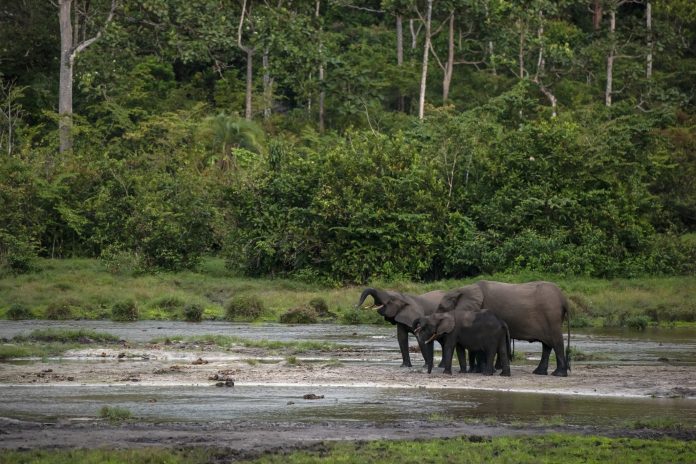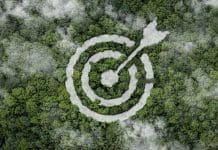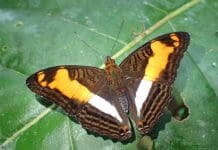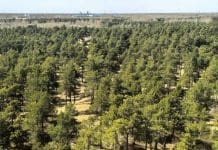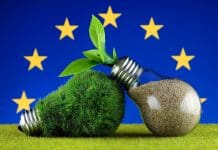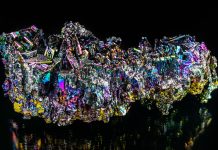The Born Free Foundation’s Head of Conservation, Dr Nikki Tagg and Head of Policy, Dr Mark Jones, say that ecological sustainability is an essential element for the future of all life on Earth
We are living in the ‘Anthropocene’, or human-dominated, era, in which human activities are having unprecedented and devastating impacts on biodiversity.
Over the last 50 years, the world has lost an estimated 69% of all mammal, fish, bird, reptile, and amphibian populations, in large part because 75% of land that is not covered by ice has been developed or converted into agricultural land to feed people.
Changes in land and sea use, alongside our overexploitation of wildlife, climate change, pollution, and the impact of ‘invasive species’, threaten the survival of a million or more species and the functionality of the ecological systems on which all life on Earth depends.
Wildlife species in the wider ecosystem
As well as being valuable in their own right, wildlife species play unique roles in the wider ecosystem. The crucial contribution of wildlife to mitigating climate breakdown is also increasingly recognised.
Animals distribute seeds and supply nutrients, enhancing plant dispersal; they disturb the soil through grazing, digging, trampling and nest building; and they change how microbes and chemicals work in these systems, thus storing more carbon.
They also reduce the frequency and intensity of wildfires and increase the ‘albedo’ – a measure of ‘reflectiveness’ – of the ground by grazing and exposing bare Earth, thus reflecting heat away.
For example, as forest elephants roam in West and Central Africa, they trample on smaller plants and seedlings, giving the larger, carbon-storing trees the space to grow. It is estimated that Africa’s rainforest would lose 6-9% of its ability to store carbon without the work of elephants.
Indian forests inhabited by tigers were found to contain three times the carbon density of forests where tigers had been eradicated. This may be because the presence of tigers deters encroachment by people, therefore reducing habitat degradation.
Pangolins dig to eat ants and termites and they excavate dens to sleep in – this moves around essential nutrients, critical to ensuring a healthy soil ecosystem, which has an important carbon sequestration role. Many other species contribute in a multitude of ways.
Furthermore, the loss of a species can set off chain reactions within ecosystems with far-reaching consequences. For example, the loss of sea otters has been shown to result in the complete collapse of kelp forests, which are an important carbon store. This is because the predation on sea urchins by sea otters allows kelp to flourish.
The so-called ‘era of pandemics’
We are also living in the so-called ‘era of pandemics’, of which COVID-19, while by no means the first, has arguably been the most devastating to date. Most pathogens that cause pandemics originate in wild animals, and COVID-19 is no exception.
When we destroy natural habitats, carving in-roads into previously untouched areas, and extract wild animals from these habitats, subjecting them to crowding, transport and often brutal holding conditions, and bringing them into close and unnatural proximity with other animals and people, the pathogens they harbour are likely to emerge, proliferate, mutate, and spill over.
Ecological sustainability – nature and wildlife
Ecological sustainability, in the context of nature and wildlife protection, can be defined as conducting human activities in ways that do not diminish biodiversity, allowing ecosystems to maintain their functionality and preserving natural processes over the long term.
It can be achieved by ensuring our activities do not degrade or destroy wildlife or disrupt biodiversity. Ecological sustainability is of paramount importance to the well-being of our planet’s delicate ecosystems and the survival of countless species, including humans.
Achieving true ecological sustainability requires considerable effort. First, it requires the development and implementation of practices that strike a balance between meeting the needs of those who rely on wildlife for their livelihoods, ensuring the responsible use of water, air and soils, while ensuring that wildlife can thrive as part of healthy and functional ecosystems into the future.
Such approaches must account for the interconnectedness of all life forms, the finite resources that sustain them, and the multitude of pressures that currently threaten biodiversity.
Moving to renewable energy sources to ensure ecological sustainability
Second, in the face of rising temperatures, extreme weather events, and changing precipitation patterns due to climate breakdown, ensuring ecological sustainability requires us to move to renewable energy sources, reduce greenhouse gas emissions, and promote the efficient use of energy.
By embracing these changes, we can help mitigate the effects of climate change on the natural world, so the protected ecosystems and the complexity of plants and animals preserved can sequester carbon, further enhancing our efforts.
Third, adopting ethical and humane approaches to wildlife management promotes responsible behaviour toward the ‘use’ of wildlife and habitats. Illegal poaching and logging, and wildlife trafficking are prevalent issues that threaten the survival of many species and the integrity of ecosystems.
Promoting ecologically sustainable approaches to wildlife
By promoting ethical and humane practices, we can foster a greater sense of responsibility and empathy toward wildlife and discourage harmful activities, which, in turn, can help prevent future pandemics and biodiversity loss.
Born Free practices and promotes humane and ecologically sustainable approaches to wildlife management throughout our conservation, education and policy work. Through this, we encourage wider collective action to protect wild animals, and safeguard livelihoods for people who live alongside and rely on wildlife.
We believe that achieving ecological sustainability is a fundamental pillar in protecting nature and wildlife, allowing us to mitigate the negative impact of human activities on the environment, conserve biodiversity, promote ethical behaviour toward wildlife, and address the challenges posed by climate change and pandemic risk.
Embracing ecological sustainability and acting as responsible stewards of nature are not only ethical responsibilities, but also essential steps toward ensuring the well-being of our planet and the countless species that call it home, including our own.

